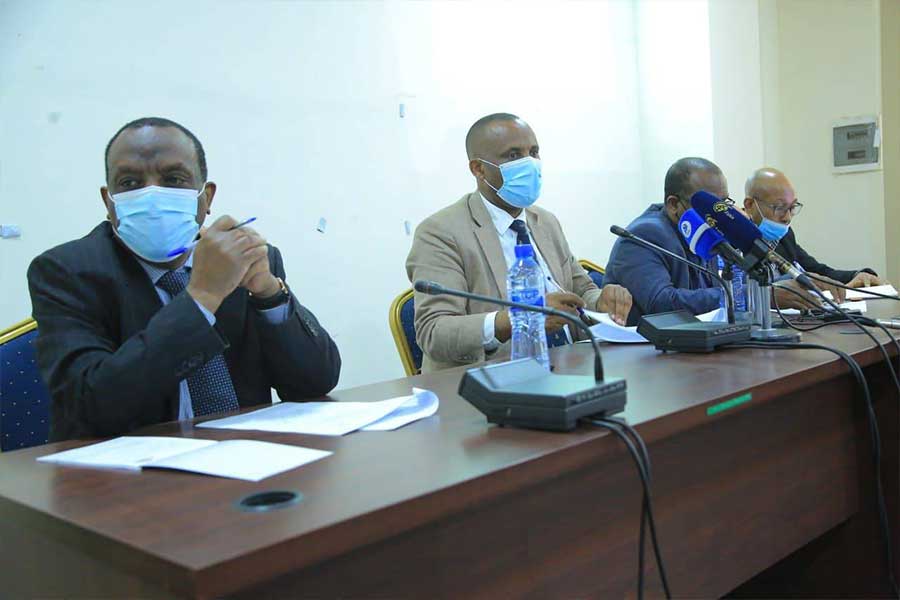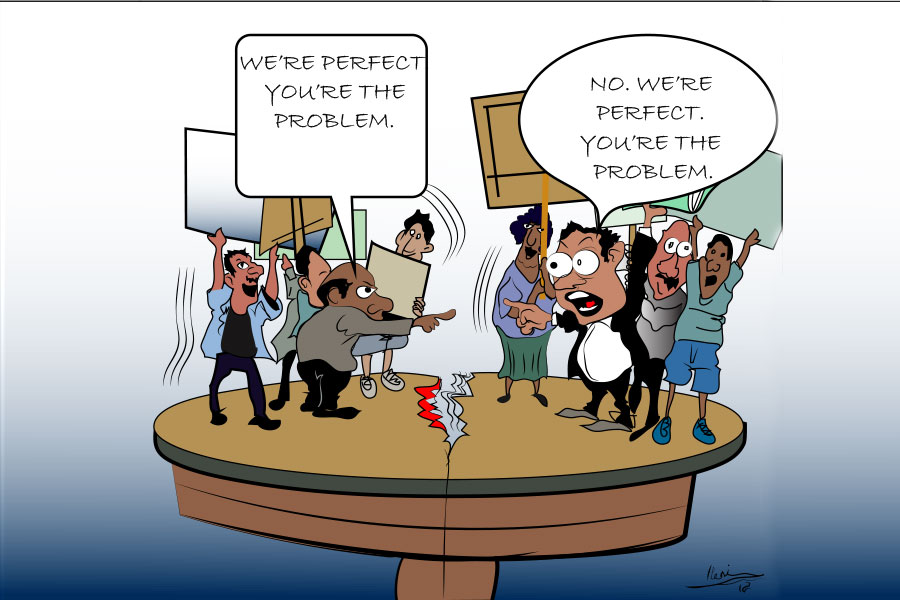
May 2 , 2020
In the absence of a hegemonic political force on the horizon, Ethiopia has entered into its most consequential phase, gossip observes. The fate of a country rests on a constitutional understanding and interpretations by legal scholars and practitioners. They will likely determine what the supreme document in the country says or omits if national elections fail to be held upon schedule.
In such a debacle of existential proportion, no one appears to be as decisive as Meaza Ashenafi, Ethiopia's chief justice, claims gossip. This fact was not lost on Prime Minister Abiy Ahmed (PhD) who, a few weeks ago, implored her to explore constitutional avenues to deal with the potential impasse. Thus, the President of the Supreme Court had convened a group of lawyers and legal scholars to brainstorm constitutional scenarios where some of them reportedly made bizarre claims on the peaceful and lawful transition of power, gossip claims.
The immediate outcome of this brainstorming session was a recommendation for Prime Minister Abiy's administration to table for the parliament an emergency decree thought to help in containing the potential spread of the Novel Coronavirus (COVID-19), gossip disclosed. In the months ahead though, the lawyers gathered have developed various options that the Prime Minister laid out for the political opposition earlier last week.
The group of individuals invited by Chief Justice Meaza who authored these options include Melaku G. Desta, a law professor recently returned from England; and Mulugeta Aregawi, a returnee from the United States, gossip disclosed.
Of the four options, the most likely to persuade the political class was whether to introduce a constitutional amendment in relation to the electoral schedule or the need to have constitutional interpretations by the House of Federation, according to gossip. Indeed, there are staunch advocates in this group who urge the administration to get an extension for the state of emergency from parliament come September 2020, claims gossip. It is a road to the abyss, which will leave Abiy's government and the command post formed to enforce the emergency decree without an elected legislative House to oversee the executive, says gossip.
In the end, lawmakers last week directed the propositions to the parliament's Legal, Justice & Administration Standing Committee chaired by Fozia Amin to further deliberate. Legislators will be back soon to make a fateful decision whether to initiate a constitutional amendment process or push the matter to the House of Federation for interpretation, according to gossip. Should they pick the latter, the case will bring back the indispensable role of Chief Justice Meaza, who chairs the Council of Constitutional Inquiry (CCI), a body established to serve the House.
The Inquiry Council has the role of studying if issues directed to the House needing constitutional interpretations do indeed have merit and makes recommendations to members of the House. Meeting in an ad-hoc manner, they have had to review several issues over the past two decades, including disputes over jurisdictional matters lawyers defending Melaku Fenta, former minister for Revenues & Customs, had raised with the Federal High Court.
The Inquiry Council comprises 11 members, including Chief Justice Meaza and her deputy, as well as three representatives from the House of Federation. Six other members selected on their merit and standing serve in the Inquiry Council, including Million Assefa, Fassil Nahom (PhD), Kifletsion Mamo, Desta Birru, Kenea (PhD) and Brehan Hailu, the latter having served as ministers of Information and Justice, respectively. Brehan has recently replaced Hashim Tofiq (PhD), who had served as one of the five deputy directors under the National Information & Intelligence Services, gossip disclosed.
PUBLISHED ON
May 02,2020 [ VOL
21 , NO
1044]

Fortune News | Dec 26,2020

Editorial | Aug 01,2020

Featured | Sep 10,2023

Editorial | Oct 16,2021

Viewpoints | Jul 25,2020

My Opinion | 131658 Views | Aug 14,2021

My Opinion | 128022 Views | Aug 21,2021

My Opinion | 125985 Views | Sep 10,2021

My Opinion | 123609 Views | Aug 07,2021

Dec 22 , 2024 . By TIZITA SHEWAFERAW
Charged with transforming colossal state-owned enterprises into modern and competitiv...

Aug 18 , 2024 . By AKSAH ITALO
Although predictable Yonas Zerihun's job in the ride-hailing service is not immune to...

Jul 28 , 2024 . By TIZITA SHEWAFERAW
Unhabitual, perhaps too many, Samuel Gebreyohannes, 38, used to occasionally enjoy a couple of beers at breakfast. However, he recently swit...

Jul 13 , 2024 . By AKSAH ITALO
Investors who rely on tractors, trucks, and field vehicles for commuting, transporting commodities, and f...

Jun 28 , 2025
Meseret Damtie, the assertive auditor general, has never been shy about naming names...

Jun 21 , 2025
A well-worn adage says, “Budget is not destiny, but it is direction.” Examining t...

Jun 14 , 2025
Yet again, the Horn of Africa is bracing for trouble. A region already frayed by wars...

Jun 7 , 2025
Few promises shine brighter in Addis Abeba than the pledge of a roof for every family...

Jun 29 , 2025
Addis Abeba's first rains have coincided with a sweeping rise in private school tuition, prompting the city's education...

Jun 29 , 2025 . By BEZAWIT HULUAGER
Central Bank Governor Mamo Mihretu claimed a bold reconfiguration of monetary policy...

Jun 29 , 2025 . By BEZAWIT HULUAGER
The federal government is betting on a sweeping overhaul of the driver licensing regi...

Jun 29 , 2025 . By NAHOM AYELE
Gadaa Bank has listed 1.2 million shares on the Ethiopian Securities Exchange (ESX),...